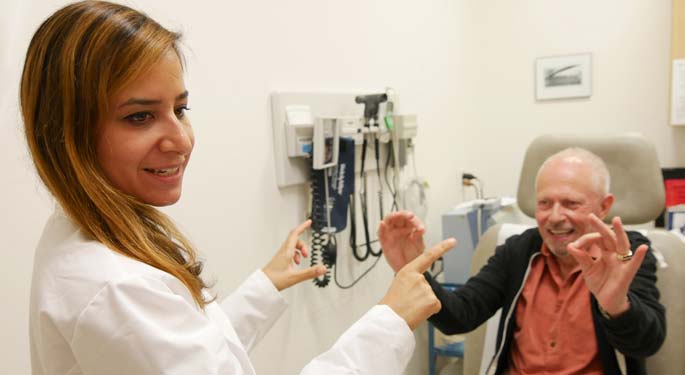Parkinson’s disease is a complex neurological condition that affects each individual differently. While general practitioners play a vital role in recognizing the condition, a Parkinson’s specialist offers in-depth expertise that can dramatically improve symptom management and long-term outcomes.
In this article, we’ll explore how working with a Parkinson’s specialist can help you manage symptoms more effectively, personalize your treatment plan, and maintain a better quality of life throughout the course of the disease.
Understanding Parkinson’s Disease
Parkinson’s disease primarily affects the brain’s ability to produce dopamine, a neurotransmitter that controls movement and coordination. As dopamine levels decline, individuals may experience a range of symptoms such as tremors, stiffness, slowness of movement, and changes in balance, posture, or speech. Parkinson’s can also affect mood, memory, and sleep, making it much more than just a movement disorder.
A Parkinson’s specialist, typically a neurologist with additional training in movement disorders, has the tools and knowledge to evaluate these symptoms accurately and develop a targeted treatment plan.
Why Choose a Parkinson’s Specialist Over a General Neurologist?
General neurologists are trained to diagnose and treat a broad spectrum of neurological issues. However, a Parkinson’s specialist dedicates their focus to movement disorders, offering specialized insight and access to advanced treatment options. This level of expertise can make a significant difference in how the condition is managed over time.
A Parkinson’s specialist can recognize subtle changes in symptoms, monitor medication effectiveness, and adjust therapies with greater precision. They also stay informed about the latest research, clinical trials, and non-traditional therapies that could benefit you.
Comprehensive Evaluation and Diagnosis
One of the first ways a Parkinson’s specialist helps is by performing a detailed assessment. This includes reviewing your medical history, current symptoms, physical examination, and possibly imaging tests like DaTscan or MRI to rule out other causes.
Unlike a general practitioner, a Parkinson’s specialist is trained to notice early signs that may be easily missed. These subtle indicators might include micrographia (small handwriting), soft voice changes, or loss of facial expression. Early diagnosis allows for earlier intervention, which can delay symptom progression and improve long-term outcomes.
Developing a Personalized Treatment Plan
Every case of Parkinson’s is unique. What works for one person may not work for another. A Parkinson’s specialist creates a personalized care plan based on your age, overall health, lifestyle, and stage of the disease.
This treatment plan may include:
-
Prescription medications like levodopa or dopamine agonists
-
Lifestyle changes such as diet and exercise
-
Physical, occupational, or speech therapy
-
Assistive devices to enhance mobility
-
Regular follow-up visits to monitor changes
By continuously refining your plan, a Parkinson’s specialist ensures you’re receiving the most effective care at every stage.
Medication Management and Adjustments
Parkinson’s medications often need to be adjusted over time to maintain their effectiveness. For example, levodopa may initially control symptoms well but later lead to motor fluctuations or dyskinesias (involuntary movements).
A Parkinson’s specialist has the experience to fine-tune your medication regimen, balancing benefits with potential side effects. They can also introduce advanced treatments like extended-release medications, infusion therapies, or even deep brain stimulation if symptoms become difficult to manage with standard medications.
Physical and Occupational Therapy Guidance
Motor symptoms such as rigidity, bradykinesia, and postural instability can severely affect mobility and independence. A Parkinson’s specialist will often collaborate with physical and occupational therapists who understand Parkinson’s-specific challenges.
Physical therapy can improve gait, balance, and flexibility, while occupational therapy can help you maintain your ability to perform daily tasks like dressing or cooking. By recommending the right therapy programs, a Parkinson’s specialist enhances your ability to stay active and self-sufficient.
Speech and Swallowing Support
As Parkinson’s progresses, many people experience speech difficulties or trouble swallowing. These challenges can increase the risk of choking, malnutrition, or social isolation. A Parkinson’s specialist can refer you to speech-language pathologists trained to address these issues through targeted exercises, vocal training, and adaptive strategies.
Mental Health and Cognitive Monitoring
Parkinson’s doesn’t just affect the body—it impacts the mind. Depression, anxiety, apathy, and even cognitive decline are common but often underdiagnosed symptoms. A Parkinson’s specialist is trained to identify and manage these aspects of the disease as part of a whole-person approach.
They can connect you with mental health professionals, suggest antidepressants compatible with Parkinson’s medications, or monitor for early signs of dementia to provide appropriate care.
Non-Motor Symptom Management
Many individuals with Parkinson’s also struggle with sleep disturbances, constipation, urinary issues, fatigue, and loss of smell. These non-motor symptoms can sometimes be more debilitating than physical symptoms.
A Parkinson’s specialist looks at the full spectrum of symptoms to ensure comprehensive care. Their treatment recommendations might include dietary adjustments, sleep therapy, medication changes, or referral to other specialists when needed.
Access to Cutting-Edge Therapies and Clinical Trials
A Parkinson’s specialist often works within academic or research-based medical environments, providing access to cutting-edge treatments that may not be widely available. This includes participation in clinical trials, advanced imaging, and experimental therapies that offer hope for better control and improved quality of life.
If you’re interested in participating in clinical research, a Parkinson’s specialist can help determine eligibility and guide you through the process.
Long-Term Monitoring and Adjustments
Parkinson’s is a lifelong condition that changes over time. Regular follow-ups with a Parkinson’s specialist allow you to adapt your treatment as your needs evolve. This continuous care model ensures that new symptoms are addressed promptly and that you remain informed about your options.
Over time, your specialist becomes a key partner in navigating your condition, answering questions, offering support, and advocating for your well-being.
FAQs About Seeing a Parkinson’s Specialist
Q: When should I see a Parkinson’s specialist?
If you’re experiencing persistent tremors, stiffness, balance issues, or changes in speech or mood, it’s time to consult a Parkinson’s specialist—especially if symptoms affect daily activities or worsen over time.
Q: What should I bring to my first appointment?
Bring a list of symptoms, medical history, current medications, and any test results. A symptom journal can also help the specialist understand patterns and progression.
Q: Can a Parkinson’s specialist cure the disease?
There is currently no cure for Parkinson’s, but a Parkinson’s specialist can help manage symptoms and slow disease progression significantly through tailored treatment plans.
Q: How often should I see a Parkinson’s specialist?
Early in the diagnosis, visits may be spaced every 3 to 6 months. As the disease progresses, more frequent appointments may be needed to adjust treatment.
Q: Do I need a referral to see a Parkinson’s specialist?
Depending on your insurance or healthcare system, a referral from your primary care doctor may be required. However, if symptoms are progressing, it’s important to advocate for specialist care.



